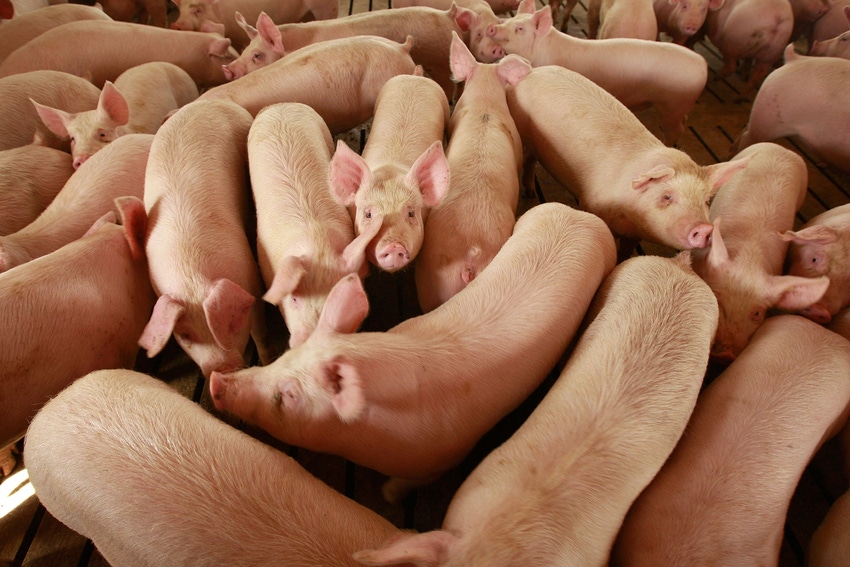Study to apply environmental enrichment to U.S. swine
With funding from FFAR, Nestle and Tyson, USDA study to link enrichment materials to pig welfare.
March 6, 2020

The Foundation for Food & Agriculture Research (FFAR) announced March 5 a $75,000 grant to the U.S. Department of Agriculture's Agricultural Research Service (ARS) to examine how environmental enrichment techniques can improve pig welfare.
FFAR said Nestle and Tyson Foods are providing matching funding, for a total investment of $150,000.
The U.S. livestock industry recognizes the need to improve animal welfare, including developing better living conditions, which positively affects animal health and overall well-being, FFAR noted. While group housing benefits pigs by improving social stimulation, it also can result in damaging behaviors like tail biting and ear chewing, which occur, in part, due to boredom or frustration, FFAR added.
Providing pigs with access to toys and devices, referred to as environmental enrichments, may reduce aggressive interactions and improve welfare.
“There is increasing public attention on how food is produced, and animal welfare is becoming more important,” ARS animal scientist Dr. Jeremy Marchant-Forde said. “Retailers and consumers expect farm animals to have a certain quality of life, and it is essential that livestock industries meet that expectation.”
Providing enrichment can reduce stress levels, increase performance and productivity and decrease aggressive or abnormal behavior toward other pigs, FFAR said. Researchers are testing various environmental enrichments like chew toys and other devices and measuring their effects on pig welfare at key development stages in the pig's life cycle.
Pig producers can use the results to develop environmental enrichment management strategies that benefit pig welfare and performance, FFAR said.
According to the announcement, the study FFAR, Nestle and Tyson are funding will be one of the first U.S.-based studies examining the effects of enrichment materials on U.S. pigs. This research is assessing pig welfare by measuring behavior, health and growth rates.
In Europe, minimum enrichment standards for pig production have already been implemented, FFAR said. The ARS research will examine how some European environmental enrichment practices may be applied to the U.S. livestock industry.
“Apps, trinkets and doodling help many of us pass time and process information; [it] turns out pigs feel the same way. Understanding how environmental enrichment impacts pig welfare pushes the needle in the right direction to ensuring that animal welfare is protected while maintaining productivity and profitability,” FFAR executive director Dr. Sally Rockey said. “This research will provide swine producers with ways to provide enrichment that they can then easily implement on their farms with minimal cost and effort.”
You May Also Like


.png?width=300&auto=webp&quality=80&disable=upscale)
